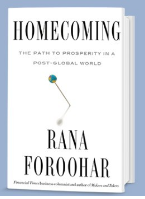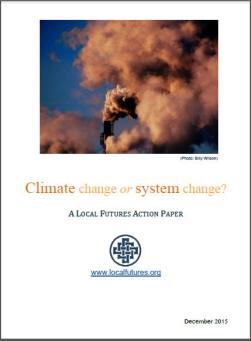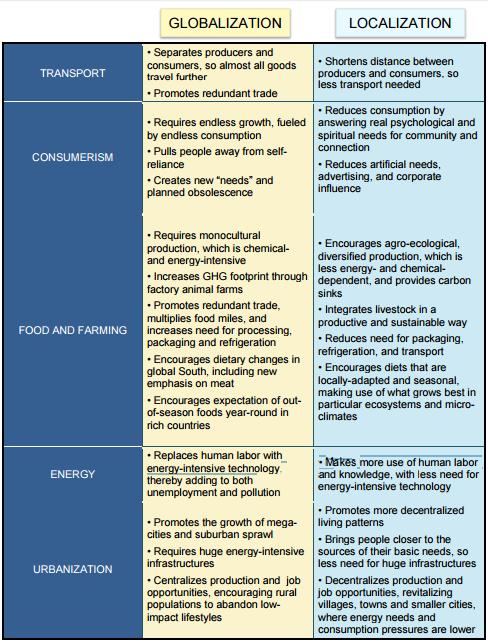Some points made by Rana Foroohar, the FT’s global business columnist and author of ‘Homecoming: The Path to Prosperity in a Post-Global World’, in her blockbuster article today, summarised below (links and photos added) .
 If we are to solve the world’s biggest problems — from climate change to wealth disparity — we have to start thinking outside the black box of conventional economics, and look at the world in a more realistic and holistic way, tapping into other disciplines such as neuroscience, anthropology, biology, law and business.
If we are to solve the world’s biggest problems — from climate change to wealth disparity — we have to start thinking outside the black box of conventional economics, and look at the world in a more realistic and holistic way, tapping into other disciplines such as neuroscience, anthropology, biology, law and business.
Amid the pandemic many realised that the US were sourcing the majority of cheap medical masks and key pharmaceutical ingredients from its biggest geopolitical adversary, China.
Today’s fractious politics are leading to more regionalisation in the most strategic sectors, including semiconductors, electric vehicles, agriculture and rare-earth minerals. Vladimir Putin’s attack on Ukraine brought into painful focus the fact that Europe bought most of its gas from a country run by an unstable autocrat.
After decades of a “winner take all” trend, in which the majority of prosperity has been located in a handful of cities and companies, look for business and policymakers to be more focused on ensuring that wealth and place are re-moored.
 Ms Faroohar (left) notes that long before the pandemic or Russia’s war in Ukraine, a host of shifts — demographic, geopolitical, technological — has been moving the world away from one-size-fits-all globalisation and towards a world of economic policymaking and business models better suited to local interests.
Ms Faroohar (left) notes that long before the pandemic or Russia’s war in Ukraine, a host of shifts — demographic, geopolitical, technological — has been moving the world away from one-size-fits-all globalisation and towards a world of economic policymaking and business models better suited to local interests.
A wave of technological innovation is making it possible to move jobs and wealth to a far greater number of places (later in the article 4D printing was cited). A generation of millennial workers and voters are pushing politicians and business leaders to think about local sustainability rather than just global growth.
Creating more opportunity at home, while still remaining connected to the global economy, will require building more resilient models, better education, infrastructure, higher local wages and less focus on the short-term.
 The common economic assumption is that it doesn’t matter where jobs are located, as long as they are created, because people will simply move to them. But as Harvard academic Gordon Hanson, (left) who reimagines free-market capitalism, puts it: “When workers without a college degree lose their jobs, few choose to move elsewhere, even when local market conditions are poor.” They depend on the family and community ties of place to buffer them in difficult times. Hanson and his colleagues are building new, highly localised models of how economic growth happens in different areas.
The common economic assumption is that it doesn’t matter where jobs are located, as long as they are created, because people will simply move to them. But as Harvard academic Gordon Hanson, (left) who reimagines free-market capitalism, puts it: “When workers without a college degree lose their jobs, few choose to move elsewhere, even when local market conditions are poor.” They depend on the family and community ties of place to buffer them in difficult times. Hanson and his colleagues are building new, highly localised models of how economic growth happens in different areas.
China announced several years ago that it wanted its own supply chains to be more local
‘Dual circulation’ is the official Chinese term for the fact that production and consumption will be clustered far more closely everywhere in the future, for many reasons, including the fragilities associated with far-flung production lines.
Those have been in evidence for some time now within western multinationals. The Boeing 787 Dreamliner, ran into delays and cost overruns in the late 2000s due to its incredibly complex supply chain, which involved outsourcing 70% of the aeroplane’s component parts to myriad countries all over the world.

Problems persist: Boeing has since stopped publicly setting delivery restart dates (2022)
It has become less cost-efficient to outsource globally in some areas:
- Wages have gone up in Asia so it has become more expensive and complicated to have far-flung global supply chains.
- Energy is more expensive.
- Companies care more about their emissions output.
Climate change is also driving localisation
Supply chains in agriculture, textiles and home-building are among the most polluting in the world. The arguments for more community-based farming, an end to fast fashion, and not wasting emissions to transport insulation, concrete or plastics all over the world are clear.

A 2021 Boston Consulting Group’s analysis (title above) found that more localised production networks would add only a 2% mark-up on a $35,000 car, a 1% increase in the price of a smartphone, or 3% more for a $200,000 home.
Precision data technologies allow for precise tracking within supply chains; a textile retailer can now identify the provenance of cotton down to a particular farm or field), and a younger consumer geared towards buying fewer things of better quality, will encourage more localisation and help the planet.
Leaders want to buffer supply-chain disruptions, cut transport costs, and reduce geopolitical risk
Companies are moving more production in-house, and trying to source and control more raw materials. Elon Musk is ahead of the curve, producing most of his Tesla in-house after discovering that it was harder to innovate and much more expensive to work with cutting-edge technologies in real time when the supply chains were far away. Ultimately, Tesla became committed to sourcing and innovating as much as it could around its battery and power train technologies locally.
 Localism will make sense not only as an economic prospect, but as a political one
Localism will make sense not only as an economic prospect, but as a political one
In his 1996 book Democracy’s Discontent, the political philosopher and Harvard professor Michael J Sandel sharply outlined why decentralisation is crucial for democracy. He writes:
“Restoring liberty meant restoring a decentralised economy that bred independent citizens and enabled local communities to be masters of their destiny, rather than victims of economic forces beyond their control.”
o

 In the wake of the Paris climate talks, Local Futures has released a 16 page action paper entitled Climate Change or System Change? (left).
In the wake of the Paris climate talks, Local Futures has released a 16 page action paper entitled Climate Change or System Change? (left). A recording of Local Futures’ first webinar, with community economist Michael Shuman and Helena Norberg-Hodge is now uploaded on YouTube.
A recording of Local Futures’ first webinar, with community economist Michael Shuman and Helena Norberg-Hodge is now uploaded on YouTube.



 A campaign involving over 600 civil society, public and private sector organisations, gave rise to the Community Wealth Fund, which invests in abandoned neighbourhoods. The government announced the fund will receive a share of dormant bank account assets.
A campaign involving over 600 civil society, public and private sector organisations, gave rise to the Community Wealth Fund, which invests in abandoned neighbourhoods. The government announced the fund will receive a share of dormant bank account assets. Wigan has one of the lowest Council Tax rates in Greater Manchester – see
Wigan has one of the lowest Council Tax rates in Greater Manchester – see







 If we are to solve the world’s biggest problems — from climate change to wealth disparity — we have to start thinking outside the black box of conventional economics, and look at the world in a more realistic and holistic way, tapping into other disciplines such as neuroscience, anthropology, biology, law and business.
If we are to solve the world’s biggest problems — from climate change to wealth disparity — we have to start thinking outside the black box of conventional economics, and look at the world in a more realistic and holistic way, tapping into other disciplines such as neuroscience, anthropology, biology, law and business. Ms Faroohar (left) notes that long before the pandemic or Russia’s war in Ukraine, a host of shifts — demographic, geopolitical, technological — has been moving the world away from one-size-fits-all globalisation and towards a world of economic policymaking and business models better suited to local interests.
Ms Faroohar (left) notes that long before the pandemic or Russia’s war in Ukraine, a host of shifts — demographic, geopolitical, technological — has been moving the world away from one-size-fits-all globalisation and towards a world of economic policymaking and business models better suited to local interests. The common economic assumption is that it doesn’t matter where jobs are located, as long as they are created, because people will simply move to them. But as Harvard academic
The common economic assumption is that it doesn’t matter where jobs are located, as long as they are created, because people will simply move to them. But as Harvard academic 

 Localism will make sense not only as an economic prospect, but as a political one
Localism will make sense not only as an economic prospect, but as a political one  This means that farmers in all countries, rich and poor, should be entitled to sufficient price protection to allow the maximum amount of food to be grown locally in each country for local consumption. This entails global cooperation (along the lines of Simpol
This means that farmers in all countries, rich and poor, should be entitled to sufficient price protection to allow the maximum amount of food to be grown locally in each country for local consumption. This entails global cooperation (along the lines of Simpol  For what you describe in your backgrounder can, I fear, only get worse until people can find a globally cooperative way out. Of course we can and must fight the present situation but we should, I think, keep in the back of our minds that this can only be a losing battle unless the global paradigm is changed.
For what you describe in your backgrounder can, I fear, only get worse until people can find a globally cooperative way out. Of course we can and must fight the present situation but we should, I think, keep in the back of our minds that this can only be a losing battle unless the global paradigm is changed.